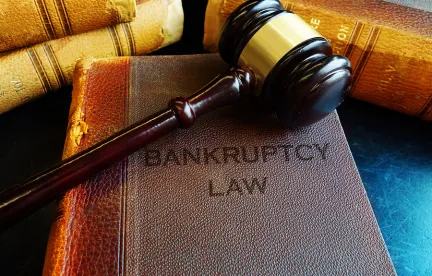On April 19, 2023, the Supreme Court issued its opinion in MOAC Mall Holdings, LLC v. Transform Holdco, LLC. The decision has implications for sales of property in bankruptcy cases.
Section 363(m) of the Bankruptcy Code protects people who buy or lease property from a bankruptcy estate. The section states that a sale or lease of estate property approved by a bankruptcy court remains valid even if the bankruptcy court’s approval is later reversed or modified on appeal. There are conditions before this protection applies—the entity that bought or leased the property must have done so in good faith, and the authorization for the sale must not have been stayed pending appeal—but if those conditions are met, the transaction cannot be undone.
Because these transactions cannot be undone, some appellate courts have found that section 363(m) deprives them of jurisdiction over appeals regarding leases and sales. According to the U.S. Constitution, federal courts only have jurisdiction over “cases and controversies”—which effectively do not exist if a federal court cannot provide any relief. For this reason, some appellate courts have read section 363(m) to mean that they lack jurisdiction to review sale and lease transactions approved by bankruptcy courts. Other appellate courts have disagreed. The distinction matters because jurisdictional challenges can be raised at any time and cannot be waived.
The MOAC opinion settles the question. Section 363(m) limits remedies but does not eliminate appellate jurisdiction, for two main reasons. First, section 363(m) does not protect all sales. For example, a buyer must still show that it entered the transaction in good faith. A buyer’s good faith can be reviewed by an appellate court, and the transaction set aside if it is missing. Second, even if section 363(m) protection applies, there might still be a remedy other than reversal or modification of the transaction that will yield some relief to an appealing party. The MOAC opinion suggests that an appellant can preserve jurisdiction by plausibly requesting relief other than invalidation of the transaction.
Of course, an arms-length transaction that is approved by a bankruptcy court will still be very difficult to reverse. Moreover, an aggrieved party may be unable to identify cost-effective relief other than reversal or modification of the transaction. Nothing in the MOAC opinion changes this. Nonetheless, if an appellant can challenge the buyer’s good faith or plausibly identify other relief, the appellate court will likely find that it has jurisdiction over the appeal, and thus allow the appeal to proceed. This may affect negotiating dynamics leading up to, or following, a bankruptcy court’s approval of a transaction.
One other practical ramification to the MOAC opinion is that it may render section 363(m) protection waivable. For instance, consider the situation at the heart of MOAC. MOAC involved a lease assignment under a different section of the Bankruptcy Code. Section 363(m) protection was not invoked until after the matter was already on appeal. In this situation, an appellate court might find that the objecting party waived any argument it may have had under section 363(m) by not raising it earlier. Prior to the MOAC decision, in circuits that had held that section 363(m)’s protections were jurisdictional, these arguments could not be waived under any circumstances.






 />i
/>i

